可持续发展的亚洲与世界2021年度报告
为应对人类社会面临的共同挑战,提升人民生活水平,联合国于2015年制定了可持续发展目标,呼吁全球一致行动,为促进经济繁荣发展、增进社会福祉和保护环境付出不懈努力。然而,由于许多发展中国家行动不足,官方发展援助下降,以及私人部门资本流动中断,实现可持续发展的步伐不尽如人意。
百年不遇的新冠疫情,使各国在人民生命健康、经济增长与社会发展上付出惨重代价,全球离可持续发展目标的差距拉大。各国疫情防控水平与疫苗分配不均衡,经济复苏不平衡,带来国家分化、不平等扩大和阻碍包容性增长的巨大风险。同时,还有可能加大地缘政治紧张局势,使全球治理变得更为复杂,进一步削弱世界抵御未来冲击的能力。如何重振全球经济,缩小日益增大的发展差距,实现可持续发展目标?世界期待找到面向未来可持续增长的新范式,而不是重回老路。
新冠疫情暴露了亚洲经济体医疗卫生体系的薄弱环节和关键基础设施的不足,凸显了数字化转型的重要性和及早应对气候与环境问题的迫切性。报告通过分析中国、印度、印度尼西亚、日本、哈萨克斯坦、韩国、马来西亚、巴基斯坦、卡特尔、沙特阿拉伯、新加坡、泰国、越南等若干有区域代表性的亚洲国家发展表现,认为卫生健康、基础设施、绿色转型和数字鸿沟是制约当前亚洲经济可持续复苏的重要瓶颈。在各国财力和资源都十分有限的情况下,政府需要有重点地行动,解决好卫生健康、基础设施、绿色和数字四大发展赤字并有效连动,有力释放发展潜力,推动实现多个可持续发展目标。
在卫生健康赤字方面,由于政府财政能力不足或规划不合理,许多亚洲经济体面临医疗资源短缺,对传染病准备不足的困境。当前,在亚洲这样一个人口众多的大陆上迅速分发和接种疫苗的任务艰巨。应提升卫生服务体系的可及性、公平性和反应性;加大卫生健康基础设施投入;考虑建立应对重大疫情或突发公共卫生事件的储备;发展健康产业,抓住数字卫生和数字健康领域的机遇;加强各国卫生健康的微观治理。
在基础设施赤字方面,需要加强硬件与软件基础设施的韧性,更好地支撑区域内经济活动和供应链稳定。有计划地建设更多能够抵御灾害和气候变化的基础设施,加大数字基础设施投入。加强跨境基础设施互联互通,支持新型基础设施建设。营造更公平、公正、非歧视的市场环境,落实好包括去年底签署的区域全面经济伙伴关系协定(RCEP)在内的自由贸易协定,进一步利用好电子商务与自动化等新兴技术和业态。
在绿色赤字方面,随着经济快速发展,亚洲国家的二氧化碳排放快速上升,许多国家面临着严重的环境和气候风险,以及适应和缓解气候变化压力的挑战。中、日、韩等亚洲国家领导人在2020年做出碳中和的目标承诺,受到国际社会广泛赞誉。在产业转型、技术进步和融资改革等方面,政府需要拿出切实可行的行动路线图。政府应激励社会不同部门朝着绿色发展方向前进,把激励架构分解到地方政府层面并加以落实。创造更多绿色就业岗位。制定更有雄心的国家自主减排贡献目标。进一步加强气候领域的技术研究与创新。
在数字赤字方面,亚洲经济体间的数字不平等切实存在,顶尖的数字技术企业在地理上高度集中,如何缩小亚洲各经济体之间的数字鸿沟,是目前亚洲面临的最大挑战之一。抓住疫情机遇促进数字经济加速发展。数字技术的应用仍有很大提升空间;推动社会管理和城市建设向数字化、智能化方向发展;推动数字普惠金融发展;促进数字经济主体公平竞争。
根据企业可持续发展调查发现,半数企业管理者对于全球经济恢复前景持中立态度,但60%的管理者对亚洲经济表示乐观。大多数企业家认为,迅速采取疫苗接种行动并逐步放松封锁措施、缓解贸易摩擦、稳定全球价值链和技术创新是全球经济复苏的主要动力;在亚洲,除了疫情防控措施以外,区域贸易一体化和(通过“一带一路”、“连接欧亚”等倡议)加强跨境基础设施建设互联互通是排名前三的复苏主要动力。博鳌亚洲论坛会员和合作伙伴一直在为实现可持续发展目标做出贡献,特别是向新能源、新基建、新零售和低排碳产业转型。现代汽车、默克和京东科技等案例研究,展示了企业如何通过医疗保障支持、绿色转型和技术创新等方式,把自身业务与可持续发展目标有机结合。
为促进可持续复苏,企业需有更意识地行动,这既是全球公民的社会责任,更是企业自身可持续发展的保障,对企业的中长期业务战略至关重要。企业应把握好自身产业所面临的机遇和风险,及时向可持续发展需要的新经济领域转型。把创新研发作为企业发展第一生产力,推动信息化、数字化、智能化和低碳技术创新应用;把握好卫生健康、绿色产业商机,吸引ESG投资;应对气候变化带来的物理风险和资金风险,朝着绿色的全球价值链迈进;加强员工传染病防治、数字技能和绿色生活方式培训,建立更为灵活的现场办公与远程办公的安排,创造更多的灵活用工机会。
为实现联合国秘书长古特雷斯提出的“重建更美未来”,国际社会需要坚持多边主义,携手合作应对新冠疫情的负面冲击,缩小四大发展赤字,解决好全球“治理赤字”。全球应加快疫苗接种,公平分配疫苗,建立防疫健康信息互认机制,为经济加快复苏打下坚实基础;推动落实《联合国气候变化框架公约》及其《巴黎协定》,实现2030年应对气候变化国家自主贡献目标;促进包括共建“一带一路”倡议在内的区域和国际发展议程有效对接、协同增效;推进各类自由贸易协定的有效落实和标准提升;鼓励科技创新合作,激发数字经济发展活力;发挥好全球治理平台与国际机构的重要作用。
面对疫情,亚洲各国为强化卫生健康体系,稳定全球供应链,引领贸易和投资复苏付出了无法想象的巨大努力。东盟加中日韩、上合组织、海合会等区域合作平台,以及亚行、亚投行等国际机构,提出了很多区域性倡议,为抗击疫情、加强互联互通、促进绿色转型和打造数字经济提供了资金和技术支持。亚洲将成为全球可持续复苏的重要引擎,与其他国家和地区携手战胜疫情,解决发展赤字,促进经济融合;加大与其他地区发展中国家合作,加强经验分享,共促能力建设;积极参与国际规则与秩序重塑,推动构建人类命运共同体。
Executive Summary of the 2021 Annual Report of
Sustainable Development: Asia and the World
To address common challenges facing mankind and improve the lives of people on the planet, the UN set out Sustainable Development Goals (SDGs) in 2015, calling for relentless and concerted efforts around the globe to promote prosperity and economic opportunity, greater social well-being, and protection of the environment. Nevertheless, the pace has been far from satisfying globally, owing to insufficient national actions, the decline in official assistance and disruption to the private flows in many developing countries.
The unprecedented COVID-19 pandemic has taken a myriad toll on people's lives and health, the world economy, and social stability, which has further widened the UN SDG gap. The uneven containment of the pandemic, rolling out of the vaccines, and unbalanced recovery of the economy posed great risks of dividing nations, enlarging inequality, and hampering inclusive growth. It may also trigger more geopolitical tensions and make global governance more complicated, further weakening the world's resilience to future shocks. How to reboot the world economy and fill the widening gap to achieve the SDG goals? The world is looking to a new norm and pattern of sustainable growth, rather than going back into the old days.
The outbreak of COVID-19 has exposed the weaknesses in healthcare system and deficiency in key infrastructures, and underscored the importance of digital transformation and urgency of tackling climate change and environmental challenges. Through analysis of development situation in China, India, Indonesia, Japan, Kazakhstan, Republic of Korea, Malaysia, Pakistan, Qatar, Saudi Arabia, Singapore, Thailand, Vietnam, and other selected countries in Asia, this report finds out that healthcare, infrastructure, green transformation, and digital deficits are bottlenecking sustainable recovery in Asia. With limited fiscal and other resources, priorities shall be given by government on narrowing these four deficits with synergized efforts, thus releasing growth potential and helping realize multiple sustainable development goals.
On healthcare deficit: Due to the lack of financial capacity or proper scheme, shortage of medical resources is a huge obstacle for many Asian economies, and to distribute vaccines with speed in such a populous continent is a daunting task. We should improve the access, fairness, and responsiveness of the health care system, invest more in public health infrastructures, strengthen the reserve dealing with public health emergencies, develop the health industry with opportunities for digital health, and improve micro-level governance.
On infrastructure deficit: Hard and soft infrastructure need to be more resilient to bolster economic activities and supply chains within the region. Develop more infrastructures targeting dealing with environmental risks and climate change, enhance investment in digital infrastructures. Further cross-border infrastructure connectivity and support innovative constructions. Build an equitable, fair, non-discriminative market environment, firmly implement free trade arrangement including the newly signed Regional Comprehensive Economic Partnership, seize the advantages of new technologies and business models like e-commerce and automation.
On green deficit: With the rapid economic development, carbon dioxide emissions of Asian countries are growing. Many of them are facing severe environmental and climatic risks, along with challenges of adaptation and mitigation. Announcements made by leaders of China, Japan, Republic of Korea, and other Asian economies on carbon neutrality in 2020 are most welcome. Concrete blueprints are needed in industry transformation, technology advancement, and finance adaptation and mitigation. Governments should set proper incentive mechanisms to direct green transformation for various sectors, and decompose the mechanisms into local government level. Create more job opportunities related to the green economy, set out more ambitious Nationally Determined Contributions, and further support research and innovation regarding climate change.
On digital deficit: Digital inequality exists across the Asian economies, with the top digital companies highly concentrated geographically. How to narrow down the digital gap among Asian economies is one of the biggest challenges faced by Asia. Governments may accelerate digital transformation under the physical barriers due to the COVID-19 pandemic. Much space exists for improvement in digital technology applications. We need to push social governance and city construction towards intelligence and digitalization. Enhance the development of digital financial inclusion, and create a fair, competitive environment for digital economy stakeholders.
d on our enterprise survey on sustainable development, half of the business owners are neutral about the prospect of the global recovery, while 60% are optimistic about Asia. Quick move in vaccination and steady ease of lockdown measures, easing of trade friction, stabilization of global value chain, and technological innovation ranked the top 4 main driving forces for global recovery, while in those for Asia recovery, regional trade integration, reinforcing cross-border infrastructure connectivity including through BRI, Connecting Euro-Asia ranked 2 and 3, next to pandemic containment. BFA members and partners have been contributing to the course of achieving SDGs, especially in proactively transforming their business to new energy, new infrastructure, new retail, and low carbon emission sectors. The specific cases of the Hyundai Motor Group, Merck, and JD Technology, demonstrated how the enterprises are aligning their businesses with the SDGs, through healthcare support, green transformation, and technology innovation.
For sustainable recovery, businesses should act with awareness. It is not only social responsibility for global citizens, but also a precondition for their own sustainability. It is critical to their medium- and long-term strategies. Firms should seize opportunities and prevent risks in transitioning toward new economic sectors that are necessary for sustainable development. Make innovation and R&D the primary productive forces; promote the innovative applications of information, digital, smart, and low-carbon technologies. Make full use of business opportunities in healthcare and green industries, attracting ESG investment. Introduce risk prevention arrangements to address the physical and capital risks posed by climate change, moving toward a green global value chain. Strengthen employee training on infectious disease prevention, digital skills, and green lifestyles. Offer a mix of in-office and remote work to create more flexible jobs.
To achieve the goal of "build back better" put forward by UN Secretary General António Guterres, the international society needs to hold firm in multilateralism, make concerted efforts to address the negative impacts brought by the COVID-19 pandemic, narrow the four development deficits, and tackle "global governance deficit". The world should prioritize vaccination, distribute vaccines equally, and establish mutual health data recognition arrangements, laying solid foundations for economic accelerated recovery. Push the implementation of the United Nations work Convention on Climate Change and Paris Agreement, facilitating the realization of Nationally Determined Contributions. Promote the connectivity and effectiveness of regional and international agreements and initiatives, including the Belt and Road Initiative. Advance the implementation of free trade agreements, and increase their standards gradually. Encourage cooperation in technology and innovation, promoting digital economy. Global governance platforms and international organizations will have a vital role to play.
Under the pandemic, Asian countries have, by all means, reinforced their health care system, stabilized the global supply chain, and led trade and investment recovery. Many regional initiatives were brought out to fight against the pandemic, enhance transportation connectivity, facilitate green transformation and shape up digital economy by the regional cooperation platforms, such as ASEAN+3, the Shanghai Cooperation Organization and the GCC, and international organizations including the ADB, AIIB, etc.
Asia will be a major engine for global sustainable recovery. It is working hand in hand with other countries and regions to win the battle against the pandemic, trim development deficits, and promote economic integration. Asian countries must further strengthen their cooperation with other developing countries in experience sharing and capacity building. Asia is also going to play an active role in reshaping international rules and order, and promote construction of a community of shared future for mankind.





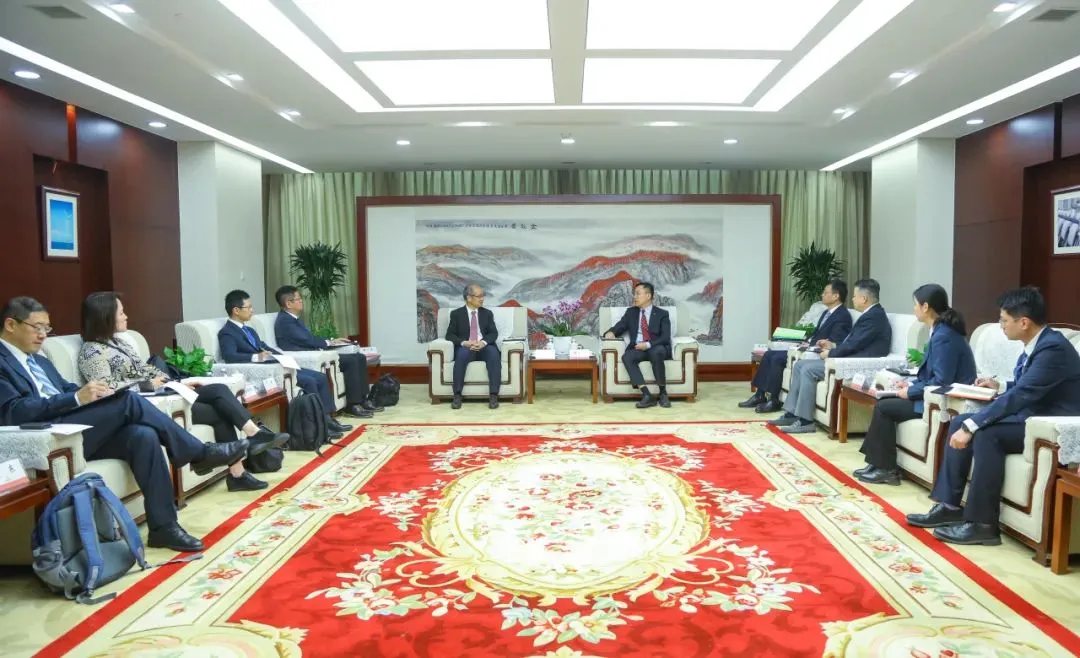
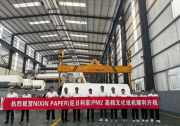
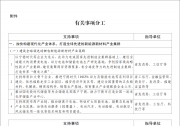

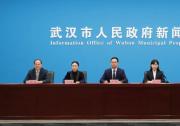
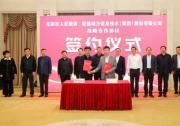



评论排行